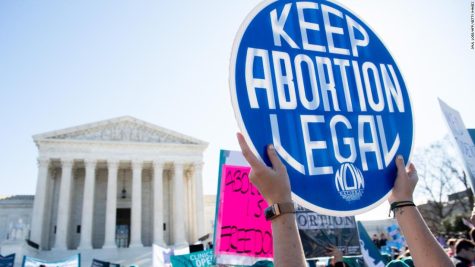Biden’s attempt to curtail greenhouse gasses though Build Back Better Act stalled in Senate by Manchin’s opposition

With scientists saying that time is running out on addressing greenhouse gasses’ impact on climate change, Pres. Joe Biden’s attempt to do so through his Build Back Better Plan lies dormant in the Senate.
President Joe Biden proposed the $1.7 trillion spending legislation “Build Back Better,” which is currently lying dormant in the Senate after Democrat Senator Joe Manchin of West Virginia announced he would not support it, essentially dooming any chance the bill had of passing the Senate. The bill would have set aside the most generous investment in climate change action in history, committing $555 billion for renewable energy and clean transportation.
National Public Radio noted, “Worldwide, scientists have found emissions need to fall 55 percent by 2030 to limit warming to a crucial threshold.” The focus of the legislation’s spending legislation would have been directed toward electric power and transportation, the two largest sources of emissions.
Despite the rejection of the “Build Back Better” bill as a whole, Democrats are still pushing to revive the climate change portion of the bill in the Senate. With a quickly closing window of time for action to be taken to combat global warming and lower greenhouse gas emissions, Democrats find it imperative that the money is granted for a national transition to clean energy use.
The Biden administration’s goal is to decrease greenhouse gas emissions by 50 to 52 percent by the year 2030. The United States’ greenhouse gas emissions rose by a little over six percent in 2021, which steered the country even further off-track from reaching this goal.
Indonesia, which has around 60 million people less than the United States, is also attempting to curb greenhouse gas emissions, and it is currently ahead of the United States in terms of lowering its emissions. “Indonesia, the world’s eighth-biggest greenhouse gas emitter, has recently brought forward its target to reach net zero emission by 2060 or earlier, from 2070 initially,” reported Reuters.
The planet is already facing the detrimental effects of climate change. The surge of wildfires, the increase in floods, the frequency of deadly storms, and the decrease in cold temperatures and snowfall in places that are accustomed to this type of weather are among the environmental complications that arose from high emissions.
Biden has shown his support for the push to get the climate portion of the bill passed. Thus far, he has displayed confidence in the Democratic party to get back the spending legislation. At a press conference, Biden told reporters, “I think it’s clear that we would be able to get support for the $500 billion plus for energy and the environment.”
The bill would not only offer the $555 billion for renewable energy and clean transportation, but it would also offer incentives for Americans to switch to clean energy in the form of about $320 billion being granted in tax credits. For example, the government may offer an incentive to Americans who opt to use solar energy to power their homes as opposed to electrical power. Americans who purchase electric vehicles could also reap the benefits of switching to cleaner transportation.
However, Manchin, chairperson of the Senate Committee on Energy and Natural Resources, led the opposition to this bill, simply proclaiming that “it’s dead.” Many speculate that his opposition is heavily influenced by his family’s involvement in the coal industry, and the fossil fuel industry is exactly the opposite of what the “Build Back Better” bill aims to promote. Other than Manchin, it is primarily Republican senators who oppose the bill being signed into law.
Many point out that Republicans would actually gain from the tax credits included in the spending bill. Barry Rabe, a professor of political science and environmental policy at the University of Michigan, told The New York Times, “Lots of the direct benefits of these tax credits already go to red states.” Markets will become more secure, which is an advantage for the economy, and a major focus of Republicans.
One of the leading proponents of the climate change bill is Democrat Senator Edward Markey of Massachusetts. He worries about the projections that the world has fewer than 10 years left to lower greenhouse gas emissions. The New York Times reported that Markey suggested that Democrats “‘take the climate and clean energy provisions in the package that have been largely worked through and financed’” as well as any other well-supported pieces of the legislation and put them together.
Scientists project that if humans do not take efforts to severely minimize greenhouse gas emissions, and in turn lower global warming, sea levels will rise by over a foot by 2050, coral reefs will be at risk of severe degradation by 2100, arctic sea temperatures will rise 35 degrees in the next decade, extreme heat waves will occur every five years, flooding risk will increase 100 to 170 percent, and plants and animals will be at risk of losing more than half their habitats. The Earth will not be habitable much longer if action is not taken.
Many are concerned about the social programs that would be put on the backburner as climate change becomes a central focus. To these constituents, Biden and the Democrats assure that these issues will be next in line. The New York Times reported that Markey stated, “that becomes the agenda that we run on in 2022 and 2024.”










